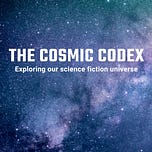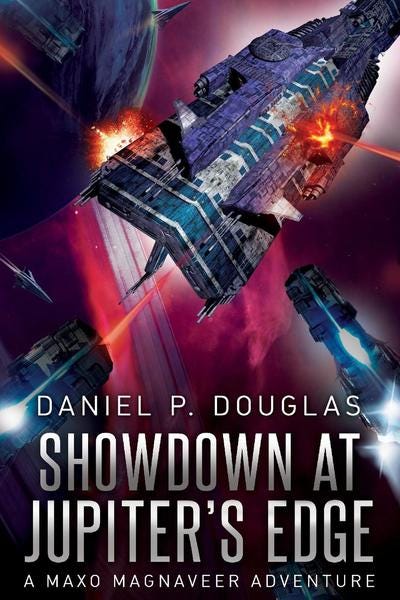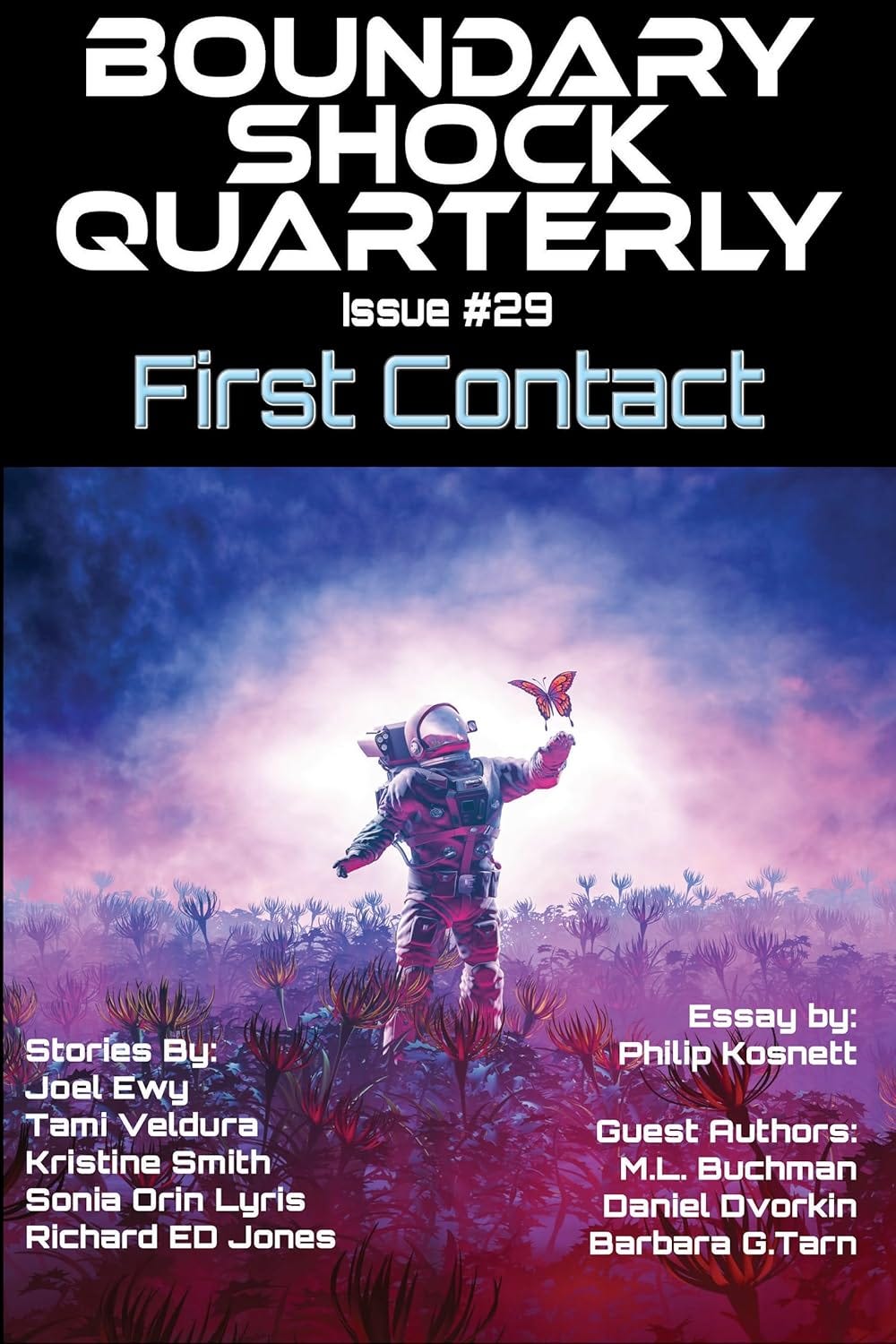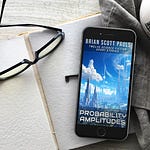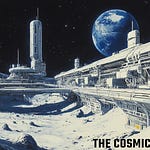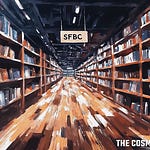My novelette, An Illicit Mercy, is part of a new promotion in May: FREE Sci-fi & Fantasy.
Over 165 stories, novels, samples and excerpts, available at no cost.
A heroic, humorous, and inspirational space opera!
Get your FREE copy of Showdown at Jupiter's Edge: A Maxo Magnaveer Adventure by Daniel P. Douglas.
Space cop Maxo Magnaveer, desperate for a major career boost, takes a wild left turn at Mercury to pursue a greedy pirate, setting himself onto a collision course with destiny!
In the year 2247, Detectant Maxo Magnaveer yearns for an opportunity to prove himself in the Cosmic Law Force so he can be promoted to squad captain. When a greedy privateer, Colonel Zaza D'Rump, brazenly hijacks a shipment of synthetic foods on its way to Mars with plans to starve the colony to death unless he is given control of Earth's shipping lanes, Maxo sees his opportunity to rise above, save the day, and finally move up in rank and prestige.
Fooled by those he thought were allies, Maxo stumbles on the slippery edge of failure more than once as he races to what could be a catastrophic battle above Jupiter near D'Rump's secret base, Porto Blago.
With his career and so many lives at stake, Maxo gains the help of old and new friends, and begins to realize his quest may not be about proving himself to anyone, but about discovering himself and rising to his true purpose in the universe.
First, however, he'll have to survive the showdown at Jupiter's edge...
by Brian Scott Pauls
This article introduces what I hope will be the first of many interviews with those who work in the science fiction field, and perhaps readers as well.
My inaugural guest is Charles Tyra, Publisher at Randolph Literary Press, which currently publishes Cosmic Horror Monthly, and will soon publish a new magazine, Goblins & Galaxies.
Click below to watch the interview, or continue reading for a transcript of our conversation I’ve edited for clarity and readability.
Brian Scott Pauls: You’ve described Cosmic Horror Monthly as a love letter to Weird Tales, one of the original fantastical pulp magazines. How do you define “weird fiction?” Newer readers who aren't steeped in the pulps may not know what that means and how to differentiate other types of science fiction and fantasy from weird fiction.
Charles Tyra: With CHM, it did kind of start out as trying to pay tribute and homage to a magazine I loved growing up. And when it comes to weird fiction, you could probably ask ten publishers or editors, and they might all have a different answer. But for me, it's kind of like taking one of the sub genres like horror or science fiction or fantasy, and then you have something that's off with the world. And it's specifically unexplained. We just experience this distortion through the mind and the eyes of the main character.
Brian: The triad of weird fiction authors, to me at least, seems to be the “acronyms”: H.P. Lovecraft, Clark Ashton Smith, and Robert E. Howard. All three wrote—in addition to fantasy and horror—science fiction. Do you find in weird fiction a blending of genres that tend to be more distinct when they don't carry that label?
Charles: That's a good observation. They can be blended in all different ways as well as standing alone. And those three writers like had their own distinct style with doing that.
Clark Ashton Smith took weird fiction in the direction of fantasy, Lovecraft in the direction of cosmic horror, and Robert E. Howard in the direction of sword and sorcery.
Brian: Clark Ashton Smith has a small segment of his bibliography that is science fiction. But what do you think characterizes Clark Ashton Smith as a science fiction writer compared more modern writers?
Charles: That's a writer that I really enjoy, but I haven't read [all] his works, compared to like Lovecraft. So how he differentiates in terms of science fiction is hard to say.
Brian: Why don't you take the same question with Lovecraft? What makes a Lovecraft science fiction story different from an Isaac Asimov science fiction story?
Charles: The real difference is the science fiction is not really at the forefront. It's definitely there. You have characters that are scientists and that are trying to discover things. And rather than being enlightened, like a lot of characters in Asimov stories, they find something, and they're horrified, and their lives changed forever in a bad way.
Brian: Do you have a favorite weird fiction science fiction story?
Charles: It's gonna kind of depend on what era we're talking about. One of my favorites that combines weird fiction and science fiction is “The Diamond Lens”, by Fitz-James O'Brien. That's a super old one.
Brian: But it's very good. James Gunn put it in one of his collections in The Road to Science Fiction. He called it a good candidate for the first modern science fiction story. In the 1860s1, I think, pre-Civil War.
Charles: Unfortunately, we didn't get more writing from him because of the Civil War.
Brian: There are a lot of science fiction writers where we could have enjoyed a lot more from them. But life got cut short, or got in the way.
Tell me about Goblins & Galaxies. You already have a successful magazine, Cosmic Horror Monthly. And you decided to start Goblins & Galaxies. It's going to combine three different sub genres.
Charles: It's going back to my my same love. For the older pulp magazines, Weird Tales was foundational for cosmic horror and sword and sorcery (about a hundred years ago.) This is me doing the same thing, applying the same treatment we did with CHM, to this other genre that I really love. But asking to take that pretty niche subgenre in new directions. Hopefully we can see it combined with dark fantasy, and also see sword and sorcery combined with science fiction. There are some rules with sword and sorcery, but I think the setting, while awesome when it's a high fantasy, medieval setting, I don't think that should be a hard rule.
Brian: The 1970s was a heyday of sword and sorcery, but a lot of writers in the 60s and 70s—I'm thinking here, in particular, of Michael Moorcock—had no compunction about combining science and magic in a sword and sorcery tale. It gives those stories a feel, a vibe, that you don't get from a lot of modern fantasy.
If Cosmic Horror Monthly is reminiscent of Weird Tales, do you see Goblins & Galaxies as something in the same vein as The Magazine of Fantasy and Science Fiction?
Charles: I definitely hope to draw some inspiration there.
Brian: What kind of stories are you hoping to get? Are you already taking submissions?
Charles: The Kickstarter is still going for another week. On May 7th we'll open submissions for the first time.
Brian: On another interview you said--perhaps surprisingly, because this is not always the case with editors--you enjoy reading the slush pile. Do you read everything that gets submitted for one of your magazines?
Charles: Early on I definitely did read everything, but as time wore on and the responsibilities increased, I wasn't able to continue doing that. I still read as much as possible. That's one of the things I haven't grown tired of. Reading new stuff is just so exciting to me. I don't read every manuscript, but I try to read as much as possible—usually like half of the pile.
Brian: What kind of range do you see? Just in terms of writing ability for people that submit a magazine.
Charles: I think that it ebbs and flows with each open call. At this point I'm taking submissions four times a year, and our last couple of open calls the writing was really strong.
Brian: That's awesome. With platforms like Wattpad, for instance, I feel there's a real desire out there for people to write and be able to send it somewhere and get somebody to look at it. [It’s] encouraging that people are sending in to your magazines.
Well known science fiction editor, John W. Campbell, Jr., if he saw a story he wasn't going to accept, but he saw a spark of promise in the writer, he would write them back—sometimes voluminous feedback, “Here's all the things wrong with your story. You should fix these on your next story.” Do you do anything like that?
Charles: We try to respond to every one we can. Unfortunately, we're not able to respond to all the manuscripts that come in. But if we have a story, it’s solid, it's promising, it was enjoy[able] to read, but it's not quite there…We're talking about maybe thirty-five spots out of a slush pile that's got 700 manuscripts in it. So a lot of great stories maybe don't make it. We try to respond to those as well as we can.
Brian: A lot of new writers, in particular, would find it encouraging to know you do some of that. It can be demoralizing when you're sending in your manuscript—even though you no longer have to type it out, put it in an envelope, send it off. But even when you log into the portal and upload it, it's kind of like, “Am I ever gonna hear anything other than, hey—no, thanks.” I'm sure some people will take encouragement from [knowing] there's a better-than-zero chance [you’ll] respond.
You mentioned Kickstarter. Did you learn anything from your launch of Cosmic Horror Monthly that informed what you did with the launch of Goblins & Galaxies?
Charles: Oh, endless lessons. I have been doing Cosmic Horror Monthly for about five years, and I just jumped into that project, not knowing a whole lot about the specific processes and what all goes into it. I've built what I do as I go, and whenever we learn about something that works, now that's the thing that we do. So there's a lot of things I won't have to learn a second time. I'm excited about hitting the ground running with this magazine.
Brian: Does [Cosmic Horror Monthly] run advertising in addition to selling subscriptions?
Charles: I decided early on that the subscription magazine you receive as a paying reader will not have advertisements in it. We offer a free version of the magazine for anyone who wants to just see what it's like. Some issues of that magazine will have ads in it.
Brian: So people that subscribe to a print version of your magazine—there are no ads.
Charles: No ads.
Brian: Wow, and that one is a monthly. Is that right?
Charles: That one is monthly. Goblins & Galaxies is at least gonna start out as a quarterly magazine.
Brian: You've recently hired an editor for CHM, correct?
Charles: Yeah. About a year ago, Jolie Toomajan came on. She knows a lot about weird fiction, and it's been great working with her.
Brian: Has circulation been growing since its launch?
Charles: It's grown pretty steadily. I've kind of just been waiting to see it level off, and it hasn't quite yet.
Brian: Wow! Are some people incredulous when you tell them that in the twenty-first century people will subscribe to a fiction magazine?
Charles: It's an interesting trend that I'm not upset to see happening. You have the last twenty years of the digital revolution, and I think people are starting to want to go back to holding a book in their hands. Social media is not what it was. You see people valuing how little time they have with a screen. I'd rather hold a book rather than read it digitally. But of course there's nothing wrong with reading digital. It's good for the environment.
Brian: I'm a lifelong reader. I will read in any format except Braille, and that's only because I don't know it. Ebooks were a boon to me, because I had moved too many times, and I just got tired of continually moving more and more books. But but recently I've done some print reading because I wanted to become a better reviewer. I decided to get some print books and highlight them. Plus, I wanted books to put on my bookshelf for my TikTok. I wanted a lot of science fiction books back there. But it definitely has an appeal. I like to read myself to sleep. And that is a different experience, with a book and a lamp by the side of your bed, than it is holding a phone.
I still love reading on my phone. It's super convenient. And to be able to carry my whole library there, my phone in one hand. But I don't fault anyone who says I just want to read on paper media, and I commend you for making your magazines available in paper format.
Tell us a little bit about the Kickstarter if people want to get involved. It continues through what date?
Charles: It continues through May 5th.
Brian: Tell us about the tiers, and what people can sign up for if they want to support the project.
Charles: We have several tiers available. It's kind of similar to the Kickstarter I ran for Cosmic Horror Monthly a couple of years back. You can join at a digital tier and just get the upcoming digital releases of the four issues plus a bonus issue. There's also a print tier. That's the same thing, but you'll receive the the magazines by mail. In addition to that, you can get a tier that has those magazines, plus some merchandise, like a shirt and a mug with the Goblins & Galaxies logo. For the serious collectors—and maybe people who didn't know about CHM, because I think it's still a little obscure to some—we offer some packages with the full backlog of Cosmic Horror Monthly.
Brian: That sounds like a deal, especially if you're a collector. So to back you, people go to Kickstarter and pick their tier. Why don't you walk us through that, if there are some folks that have been hesitant to do a Kickstarter? Make it sound [less intimidating] for them.
Charles: Kickstarter is a unique way to support a project. You create a project, and you want to raise so much money to make the project happen. People can contribute, and in exchange for the contribution, they'll get rewards like we were just talking about. The main difference here is that you only get charged and receive the rewards if the campaign meets the goal. I'm glad to say that we've already met the goal. So anyone who decides to contribute in the next week, you're guaranteed to receive the magazine.
Brian: I saw an email today that your new stretch goal the campaign just hit allows you to double your rate to the writers. Are you at [the] level now where you're paying professional rates?
Charles: We've been trying to get to six cents [per word]. I think eight cents is required to be pro rate these days. We'll try to get to that, too. But we've been paying three cents at CHM for a long time. I was really hoping to debut Goblins & Galaxies at six cents. Because there's no magazine without the writers.
Brian: And for people again, who are thinking of writing and submitting and have their eye on the [Science Fiction and Fantasy Writers Association], their current membership requirements are based on a total amount you have earned. As I read them, they no longer just accept submissions [published] in a professional rate magazine. That makes it a bit easier, especially in this day and age, when there are so many different ways to monetize your writing. Not everything fits in that narrow niche that was so common for so long.
This has been a great interview. Thank you for making my first interview painless. I’d love to have you on again when you have something to share about how Goblins & Galaxies is going. Thank you, Charles, for joining us, and good luck on the rest of your Kickstarter campaign. I look forward to reading Issue Zero when it's ready to go.
Charles: Thanks so much, and I'd be honored to come back anytime.
You can back Goblins & Galaxies on Kickstarter until May 5.
Are you a fan of “weird science fiction?” What do you consider to be “weird fiction?” Who is your favorite weird fiction author? Your favorite weird science fiction story? Please comment below!'
My latest novelette, “Fire From Heaven,” now appears in Boundary Shock Quarterly 29: First Contact.
In the shadows of an alien world, terror awaits. On the radiation-blasted planet Janus, a team of explorers descends into Abbadon—an ancient mountain facility hiding unimaginable secrets. As they navigate bizarre chambers filled with cryptic carvings, they unleash a nightmare. But the true horror lies not in the alien ruins, but in the chilling implications of the team’s discovery.
Fire From Heaven is the sequel to my previous novelette, “Nasty, Brutish, and Short.”
“The Diamond Lens” by Fitz-James O’Brien first appeared in “The Atlantic Monthly” in 1858.


